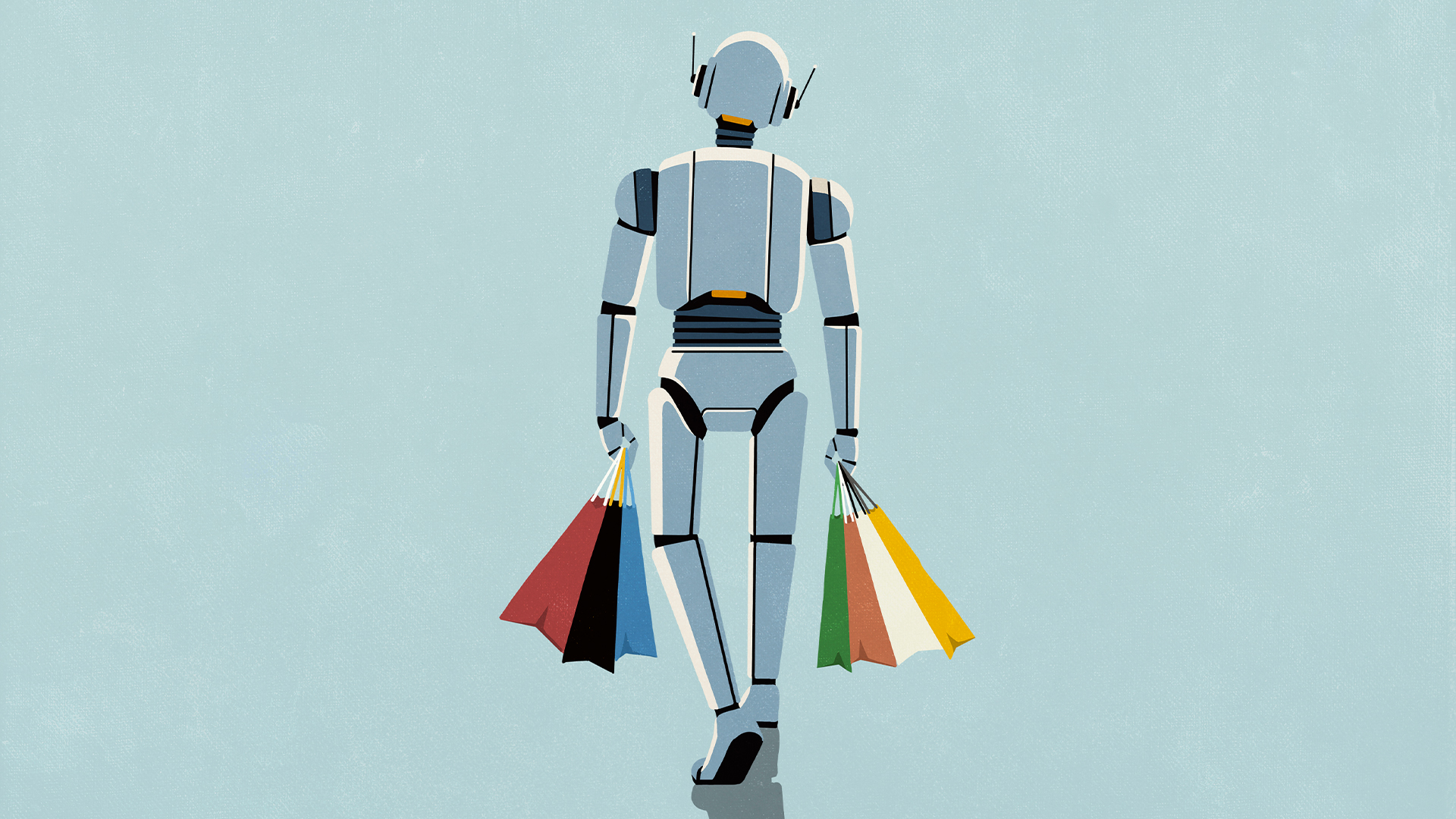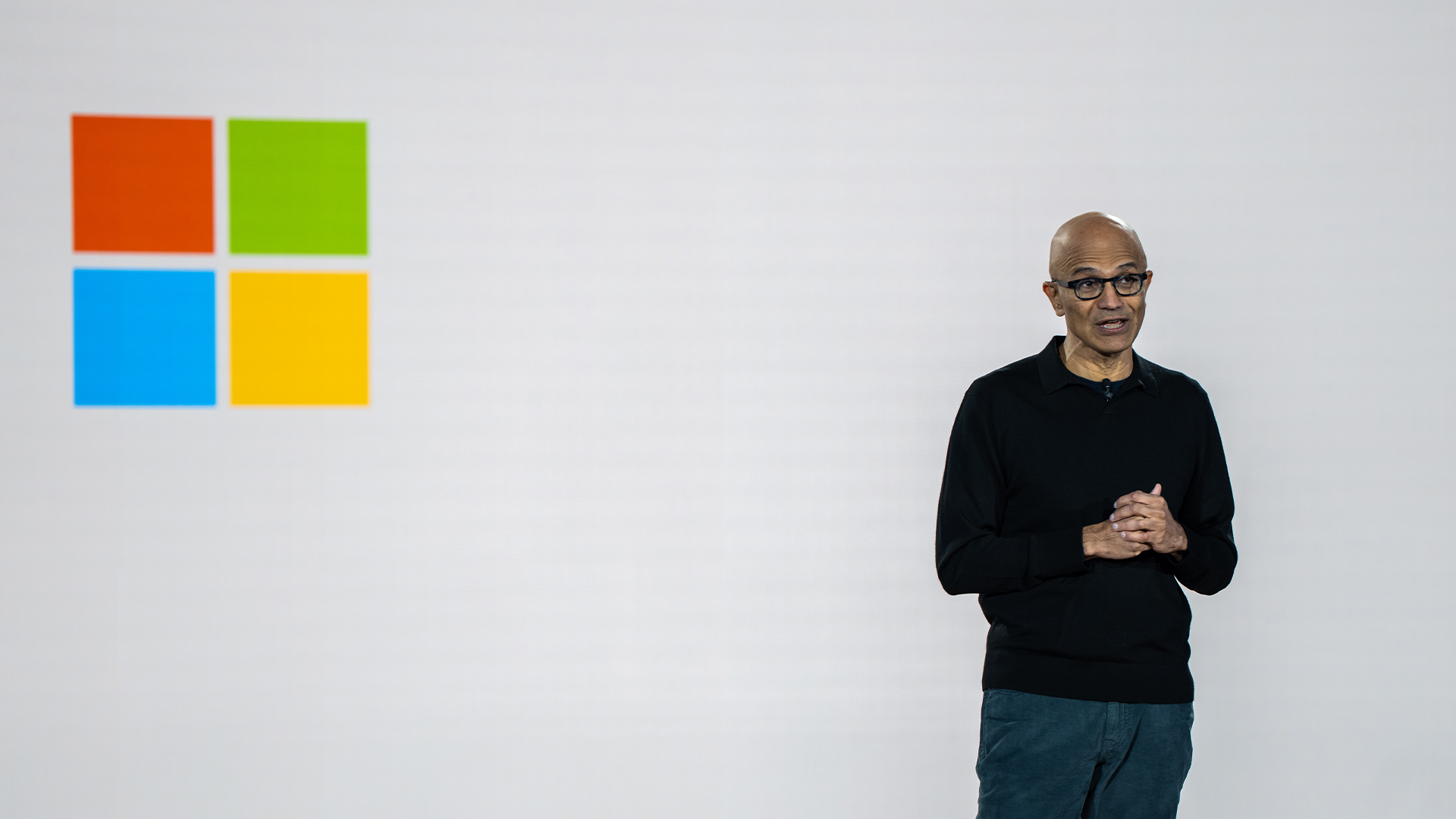Microsoft says workers should believe the hype with AI tools: Researchers found Copilot users saved three hours per week sifting through emails, gained more focus time, and completed collaborative tasks 20% faster
Using AI tools paid dividends for some workers, but alternative research shows it could create problems for others down the line


Generative AI tools are delivering marked benefits for users, according to research from Microsoft, with employees reporting significant productivity gains.
In a paper published this month, the tech giant said the technology is rapidly changing work patterns as adoption rates continue to rise.
The study saw 6,000 knowledge workers at more than 50 companies given access to the firm’s flagship Copilot tool during a six month experiment.
Researchers noted that the study was conducted “during the early rollout” of the AI assistant, which was integrated into Microsoft applications such as Word, Outlook, and Teams.
Notable productivity gains were observed across a range of activities, the study claimed. Workers saved nearly three hours per week sifting through and responding to email correspondence, for example, representing a 25% workload reduction.
During the early phases, the use of Copilot to support activities in Outlook was among the most popular use-cases, researchers said. Workers typically spent over 11 hours per week reading and responding to correspondence, meaning the time savings were significant in the context of broader productivity gains.
“During this early adoption phase, the most prominent impact of Copilot on worker behavior was changes in how workers managed their email. In the pre-period, the average worker in our sample spent over 11 hours per week reading and responding to emails, more than a quarter of a typical work week,” the paper reads.
Sign up today and you will receive a free copy of our Future Focus 2025 report - the leading guidance on AI, cybersecurity and other IT challenges as per 700+ senior executives
Elsewhere, the use of Copilot by participants enabled them to increase their ‘focus time’ on a weekly basis. The reduction of time spent on various activities and tasks meant they gained two additional hours of uninterrupted focus time, the paper noted.
Similarly, researchers found the tool allowed users to complete documents around 20% faster in some instances - again helping to unlock additional time savings across a working week.
All told, the productivity boosts delivered by AI tools are having a significant impact on employee workflows, researchers found, with agility and self-sufficiency in particular highlighted as key advantages.
“We find clear evidence that workers who use Copilot are beginning to change their work patterns in meaningful ways,” researchers said.
“During this early adoption phase, we see larger changes in behavior that workers can adjust independently and less movement in behaviors that require coordination with colleagues.”
Developers have promised big gains with AI tools
Productivity gains and time savings have been a key appeal highlighted by AI assistant developers such as Microsoft over the last two and a half years.
Proponents of the technology have repeatedly claimed that AI tools can help workers spend time on more ‘meaningful tasks’, often without fully explaining what that entails for the average worker.
Research published this year also suggested that the adoption of AI tools has, in some instances, increased workloads for users, with many now having to take on additional tasks.
Analysis from Wrike found workloads grew by nearly one-third between 2023 and 2024, raising questions over whether the technology is having the desired effect.
The Microsoft paper, however, noted that workers have not “shifted the nature of the work or taken on new responsibilities” in the wake of being equipped with Copilot.
“We find few substantive differences in these patterns among workers with more close co-workers who also have access to Copilot or within firms with higher adoption rates, suggesting that larger shifts in responsibilities require time and broad institutional efforts, not just local team coordination.”
Overreliance on AI tools might still harm workers
Despite notable benefits highlighted by Microsoft, the paper comes in the wake of similar research from the firm suggesting the frequent use of AI tools could have a negative impact on worker competence.
In a survey of 319 knowledge workers conducted by Microsoft and Carnegie Mellon University, researchers raised serious concerns over the impact of generative AI on users’ long-term cognitive abilities.
Researchers highlighted a “deterioration of cognitive faculties that ought to be preserved”, for example, adding that critical thinking skills had deteriorated among frequent users.
Users typically double check the quality of their work in any given task, the study found. However, the more confidence a worker had in a generative AI tool, the less likely they were to use their own critical thinking skills to engage with their work.
The result of this could have serious implications for users across a range of professions, with some trusting AI tools to produce flawless work that results in mistakes slipping through the net.
"Surprisingly, while AI can improve efficiency, it may also reduce critical engagement, particularly in routine or lower-stakes tasks in which users simply rely on AI, raising concerns about long-term reliance and diminished independent problem-solving," researchers said.
MORE FROM ITPRO

Ross Kelly is ITPro's News & Analysis Editor, responsible for leading the brand's news output and in-depth reporting on the latest stories from across the business technology landscape. Ross was previously a Staff Writer, during which time he developed a keen interest in cyber security, business leadership, and emerging technologies.
He graduated from Edinburgh Napier University in 2016 with a BA (Hons) in Journalism, and joined ITPro in 2022 after four years working in technology conference research.
For news pitches, you can contact Ross at ross.kelly@futurenet.com, or on Twitter and LinkedIn.
-
 Morgan Stanley research warns AI is having a huge impact on jobs
Morgan Stanley research warns AI is having a huge impact on jobsNews Analysis of five sectors highlights an "early warning sign" of AI’s impact on jobs
-
 AI is “forcing a fundamental shift” in data privacy and governance
AI is “forcing a fundamental shift” in data privacy and governanceNews Organizations are working to define and establish the governance structures they need to manage AI responsibly at scale – and budgets are going up
-
 If Satya Nadella wants us to take AI seriously, let’s forget about mass adoption and start with a return on investment for those already using it
If Satya Nadella wants us to take AI seriously, let’s forget about mass adoption and start with a return on investment for those already using itOpinion The Microsoft chief said there’s a risk public sentiment might sour unless adoption is distributed more evenly
-
 Half of agentic AI projects are still stuck at the pilot stage – but that’s not stopping enterprises from ramping up investment
Half of agentic AI projects are still stuck at the pilot stage – but that’s not stopping enterprises from ramping up investmentNews Organizations are stymied by issues with security, privacy, and compliance, as well as the technical challenges of managing agents at scale
-
 What Anthropic's constitution changes mean for the future of Claude
What Anthropic's constitution changes mean for the future of ClaudeNews The developer debates AI consciousness while trying to make Claude chatbot behave better
-
 Satya Nadella says a 'telltale sign' of an AI bubble is if it only benefits tech companies – but the technology is now having a huge impact in a range of industries
Satya Nadella says a 'telltale sign' of an AI bubble is if it only benefits tech companies – but the technology is now having a huge impact in a range of industriesNews Microsoft CEO Satya Nadella appears confident that the AI market isn’t in the midst of a bubble, but warned widespread adoption outside of the technology industry will be key to calming concerns.
-
 Workers are wasting half a day each week fixing AI ‘workslop’
Workers are wasting half a day each week fixing AI ‘workslop’News Better staff training and understanding of the technology is needed to cut down on AI workslop
-
 Retailers are turning to AI to streamline supply chains and customer experience – and open source options are proving highly popular
Retailers are turning to AI to streamline supply chains and customer experience – and open source options are proving highly popularNews Companies are moving AI projects from pilot to production across the board, with a focus on open-source models and software, as well as agentic and physical AI
-
 Microsoft CEO Satya Nadella wants an end to the term ‘AI slop’ and says 2026 will be a ‘pivotal year’ for the technology – but enterprises still need to iron out key lingering issues
Microsoft CEO Satya Nadella wants an end to the term ‘AI slop’ and says 2026 will be a ‘pivotal year’ for the technology – but enterprises still need to iron out key lingering issuesNews Microsoft CEO Satya Nadella might want the term "AI slop" shelved in 2026, but businesses will still be dealing with increasing output problems and poor returns.
-
 OpenAI says prompt injection attacks are a serious threat for AI browsers – and it’s a problem that’s ‘unlikely to ever be fully solved'
OpenAI says prompt injection attacks are a serious threat for AI browsers – and it’s a problem that’s ‘unlikely to ever be fully solved'News OpenAI details efforts to protect ChatGPT Atlas against prompt injection attacks